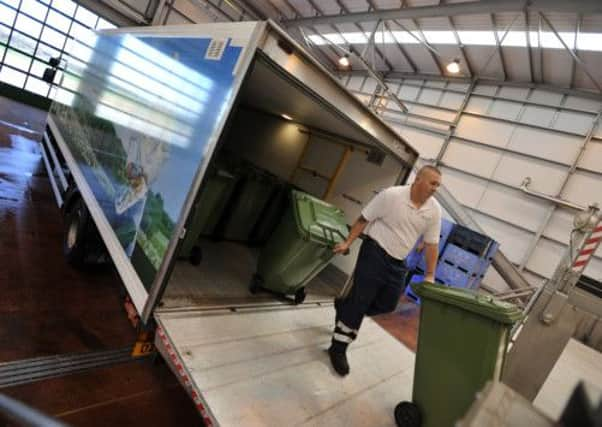Food you don’t eat is fuelling expansion for PDM


A Yorkshire-based firm is also doing its bit to ensure that there are more “green” vehicles on our roads.
One of Britain’s largest food waste recycling companies hopes to create jobs in Yorkshire as it grows in response to market demand.
Advertisement
Hide AdAdvertisement
Hide AdDoncaster-based PDM, the UK’s largest food waste recycler, plans to spend more than £90m on its UK operations before the end of 2014.
The company already employs around 260 staff at its Doncaster site. The Doncaster operation accounts for £60m out of the PDM Group’s £230m annual turnover.
Philip Simpson, the commercial director at PDM said: “The Doncaster expansion will involve more staff. This is a long-term investment.”
Apart from the £44m being invested in new anaerobic digestion facilities in Widnes and Dagenham for its ReFood food waste business, the company is also spending £29m to upgrade its animal by-product rendering operations in Nuneaton and Widnes.
Advertisement
Hide AdAdvertisement
Hide AdA further £18m is being invested on its petfood processing facilities in Widnes, Doncaster and Nottingham.
PDM opened its first ReFood plant in Doncaster in September 2011. Mr Simpson said that, altogether, around 30 jobs were expected to be created on the Doncaster site.
The £20m plant at Widnes, which is due for completion at the end of the year, will have 50 per cent more capacity, with three combined heat and power (CHP) engines to convert the biogas produced during the AD process into renewable electricity.
Capable of handling 90,000 tonnes of commercial and domestic food waste, the Widnes operation will generate enough energy for around 8,000 homes, as well as heat, which will be used by its rendering operation on site and by neighbouring businesses. The organic fertiliser produced will be used by farmers in the local area to grow crops.
Advertisement
Hide AdAdvertisement
Hide AdApart from renewable energy and digestate for agriculture, the Dagenham AD plant, which is due to be built later this year, will produce bio-methane which will be exported or used on commercial vehicles and buses.
The use of bio-methane in road vehicles will help to meet the increasing demand for greener transport fuels by major supermarkets and Transport for London.
Andy Smith, chief executive officer at PDM, said yesterday: “This is a significant investment in new and existing facilities in the UK that will ensure we remain at the forefront of food waste and animal by-product processing.
“As part of Saria Bio-Industries, PDM is committed to using the most advanced technological solutions to ensure we optimise the resource value and quality of food by-products and waste, through state-of-the-art processing techniques and world class quality standards.
Advertisement
Hide AdAdvertisement
Hide Ad“This investment will ‘future-proof’ our business and give customers the reassurance that they are dealing with the best in the industry, while allowing us to expand significantly our operations in the UK.”
PDM Group has a long tradition of providing services to the UK food supply chain.
For more than 80 years, the family-run company has been the UK’s largest processor of meat and poultry by-products.
It has diversified its services into food processing; pet food ingredient manufacturing; renewable energy generation and recycling of food waste and used cooking oil.
Advertisement
Hide AdAdvertisement
Hide AdAnaerobic digestion (AD) is a natural process that biologically breaks down organic material to generate large amounts of biogas, which is a combination of methane and carbon dioxide. It works in a similar way to a compost heap. All of the food waste is emptied into hoppers which act as mixing vessels.
The waste then goes through a system which separates the packaging from organic waste.
Plastics are recovered, cleaned and sent away to create refuse-derived fuels.
Liquid is then added to the organic waste so it can be pumped. All food waste is passed through a heat exchanger and heated using recycled heat. It is cooled by passing it over incoming material. The waste is then moved to a mixing tank, that holds three days supply of waste.
Advertisement
Hide AdAdvertisement
Hide AdThe digester tanks are fed in turn, with each holding 3,500 tonnes of material. The material stays there for 30 to 35 days, and in the absence of oxygen, bacteria breaks it down, and produces methane gas.
Gas is collected from the top of the digesters and then passed through a biological scrubber, where bacteria filters out and hydrogen sulphide which damages the engines.
The gas is then held in storage tanks until required.
It is then pre-conditioned to remove water, cooled and pressurised, before being fed to engines which produce enough electricity at the company’s Doncaster plant to power 5,000 homes.